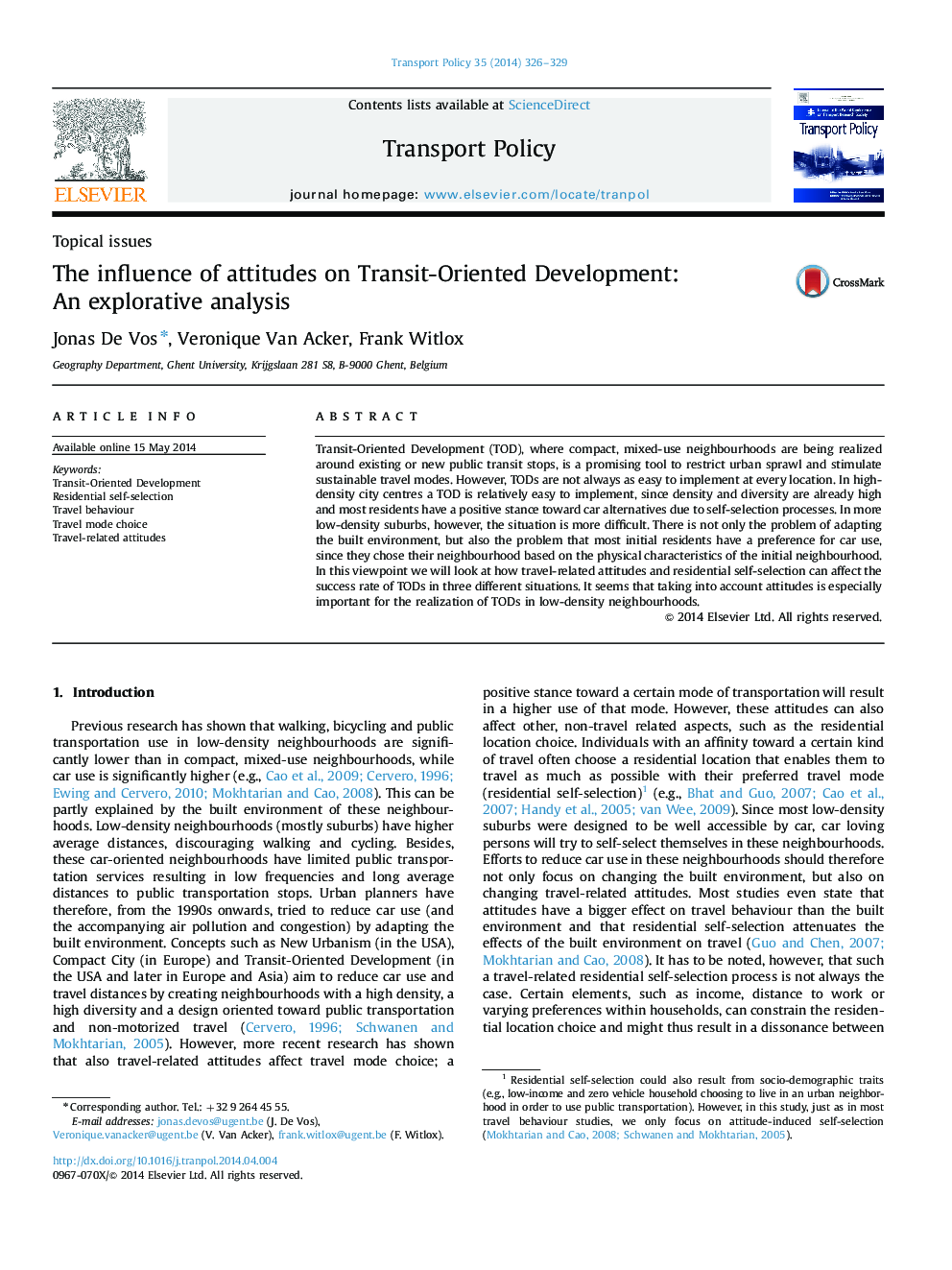| Article ID | Journal | Published Year | Pages | File Type |
|---|---|---|---|---|
| 1064887 | Transport Policy | 2014 | 4 Pages |
•Travel-related attitudes should be incorporated in TOD research.•Information on attitudes prior to the development of TODs can help to increase the success rate.•Travel-related attitudes are especially important in low-density TODs.
Transit-Oriented Development (TOD), where compact, mixed-use neighbourhoods are being realized around existing or new public transit stops, is a promising tool to restrict urban sprawl and stimulate sustainable travel modes. However, TODs are not always as easy to implement at every location. In high-density city centres a TOD is relatively easy to implement, since density and diversity are already high and most residents have a positive stance toward car alternatives due to self-selection processes. In more low-density suburbs, however, the situation is more difficult. There is not only the problem of adapting the built environment, but also the problem that most initial residents have a preference for car use, since they chose their neighbourhood based on the physical characteristics of the initial neighbourhood. In this viewpoint we will look at how travel-related attitudes and residential self-selection can affect the success rate of TODs in three different situations. It seems that taking into account attitudes is especially important for the realization of TODs in low-density neighbourhoods.
